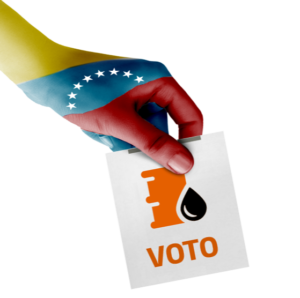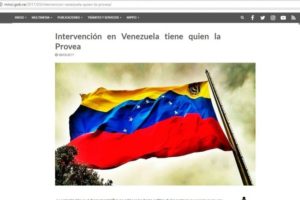 The Trump administration’s bid to replace Venezuela’s authoritarian leader Nicolás Maduro hit a roadblock after a meeting with Russian officials in Rome last year—and has never recovered, according to The Wall Street Journal’s Jessica Donati, Andrew Restuccia and Ian Talley.
The Trump administration’s bid to replace Venezuela’s authoritarian leader Nicolás Maduro hit a roadblock after a meeting with Russian officials in Rome last year—and has never recovered, according to The Wall Street Journal’s Jessica Donati, Andrew Restuccia and Ian Talley.
U.S. envoy Elliott Abrams arrived at the Westin Excelsior hotel hoping to persuade Russia to withdraw its support for Mr. Maduro and to recognize Juan Guaidó as Venezuela’s legitimate leader. Russian deputy foreign minister Sergei Ryabkov instead demanded the U.S. back down from military threats and lift the economic sanctions intended to force Mr. Maduro’s hand, they write:
Mr. Abrams, the U.S. envoy, acknowledged this month that the yearlong U.S. effort to remove Mr. Maduro has stalled. “We underestimated the importance of the Cuban and Russian support for the regime,” he said. “The Russian role in the economy, particularly the oil economy, is larger and larger.” …Looking back, the U.S. campaign originated with unrealistic expectations, current and former U.S. officials and Venezuelan opposition activists said.
“There was a firm belief, and briefed to the president, that all that had to be done was to recognize Guaidó, and Maduro would fall,” said Fernando Cutz, a former White House National Security Council official during the Trump and Obama administrations who was involved in U.S.-Venezuela policy.
 The administration’s call for the Venezuelan military to defect and support Mr. Guaidó was wishful thinking, said Michael Shifter, president of the Inter-American Dialogue, a nonpartisan think tank: “The last thing the military are going to do is follow orders from a foreign power, especially the U.S.”
The administration’s call for the Venezuelan military to defect and support Mr. Guaidó was wishful thinking, said Michael Shifter, president of the Inter-American Dialogue, a nonpartisan think tank: “The last thing the military are going to do is follow orders from a foreign power, especially the U.S.”
The deeper driver of Venezuela’s implosion isn’t Maduro’s doctrinaire adherence to socialism but, rather, the country’s slide into kleptocracy, argue analysts Moisés Naím* and Francisco Toro. To focus on Venezuela as a failure of socialism is to miss the real story: the collapse of the Venezuelan state and the takeover of its resources by a confederation of ruthless criminals from both inside and outside the country, they write for Foreign Affairs:

Provea
Even if Maduro’s henchmen could be persuaded to accept a negotiated outcome, Venezuela’s problems will be very far from over. The end of the Maduro regime, when it does come, will reveal a hollowed-out husk of a state. The competent public administrators fled years ago. Rapidly rebuilding critical physical infrastructure may be possible, but rebuilding the institutional infrastructure will take much longer. The fall of the regime will just be the necessary start to a tumultuous decade of Venezuela’s rebirth.
*A former National Endowment for Democracy (NED) board member.







